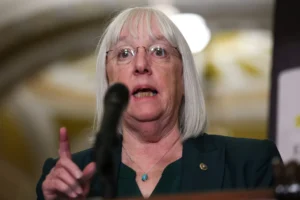Tom Fletcher, the newly appointed head of the United Nations humanitarian aid agency, has pledged a “ruthless” approach to prioritizing aid allocation amid increasing global crises and dwindling donor funding. Fletcher, a former British diplomat who took office last month, emphasized the urgency of directing limited resources toward the most critical needs.
“We will focus and target the resources we have,” Fletcher said as the UN Office for the Coordination of Humanitarian Affairs (OCHA) launched its 2025 global appeal.
OCHA’s 2025 appeal seeks $47 billion to assist 190 million people in 32 countries. However, an estimated 305 million people globally are in need of humanitarian aid, highlighting a stark funding gap.
“The world is on fire, and this is how we put it out,” Fletcher told reporters, underscoring the gravity of the crises.
Humanitarian organisations, including OCHA and the Red Cross, have struggled with a significant decline in funding for both ongoing crises—such as in Syria and South Sudan—and newer emergencies, including Ukraine and Sudan. By November, only 43% of OCHA’s $50 billion appeal for 2024 had been fulfilled, forcing severe cuts, including an 80% reduction in food aid for Syria as violence escalates.
The 2025 appeal identifies Syria ($8.7 billion), Sudan ($6 billion), the Occupied Palestinian Territory ($4 billion), Ukraine ($3.3 billion), and Congo ($3.2 billion) as the largest funding priorities. Fletcher acknowledged the necessity of making difficult decisions to ensure aid reaches the most vulnerable.
“We cannot help everyone, everywhere,” Fletcher admitted, calling for a more targeted and strategic approach to global aid efforts.
Fletcher’s remarks come as donor fatigue and competing global priorities strain the humanitarian system. OCHA’s new strategy signals a shift toward tougher resource allocation to confront one of the most challenging periods in modern humanitarian history.
With global emergencies continuing to rise, Fletcher’s leadership will be pivotal in determining how the world responds to escalating humanitarian needs.



























